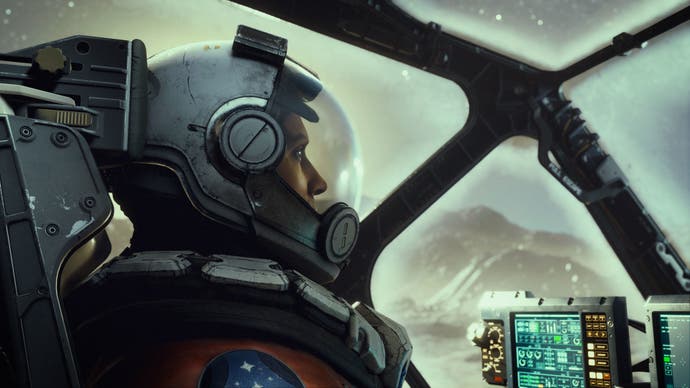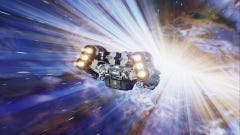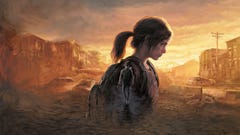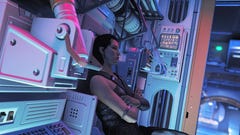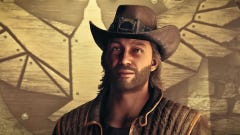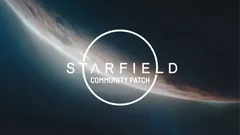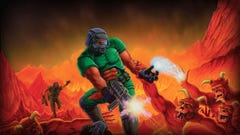What's Traveller? An introduction to the sci-fi tabletop RPG that inspired Starfield
Narrative character creation, skill-based progression and hard sci-fi - could we see all these in Bethesda's next epic?
From Baldur's Gate 3's revival of the legendary Dungeons & Dragons series to Warhammer's fantasy football spin-off returning in Blood Bowl 3, 2023 looks to be a year defined by video games rooted in classic tabletop games both explicitly and more indirectly - and Bethesda's sci-fi adventure Starfield will be no different.
Starfield creative director Todd Howard openly cited the influence of tabletop RPG Traveller on the hotly-anticipated release last October, saying that the upcoming video game is "hearkening back to those old roleplaying games that we loved". There's an especially personal connection for Howard too, as he recalled programming a Traveller game for the Apple II computer as one of his earliest coding projects.
When it comes to old roleplaying games, there are few older than Traveller. Released in 1977, only a few years after Dungeons & Dragons revolutionised tabletop roleplaying, the sci-fi RPG has evolved over no fewer than a dozen editions in the last 40-plus years, changing hands along the way from original creator Game Designers' Workshop to current-day studio Mongoose Publishing.
The game has also jumped between different gameplay systems, with the 1977 game's reliance on two six-sided dice being replaced temporarily by the d20 familiar from Dungeons & Dragons - D&D publisher Wizards of the Coast itself released a Traveller D20 in the early noughties - and seeing a spin-off for setting-agnostic system GURPS before returning to its original rules for Mongoose's latest edition.
Among the elements that made Traveller so unique at the time of its release - and still held up as one of the best sci-fi RPGs today - is its narrative approach to character creation. In contrast to D&D's use of rigid classes to define characters' skills and abilities, Traveller uses a lifepath system that simulates a character's past experience.
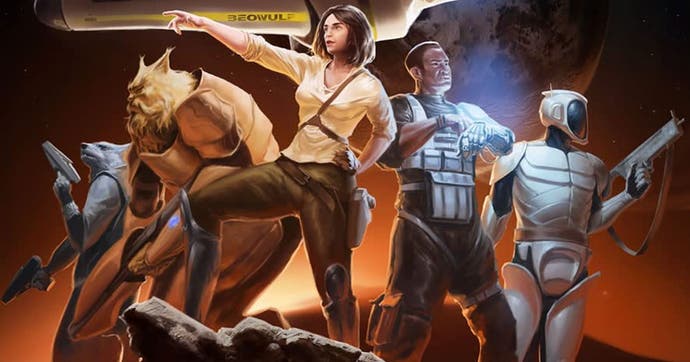
This lifepath system works like a mini-game in its own right, with players choosing a career for their character - typically a military path, or life as a merchant - before rolling to see what successes and mishaps they encountered in their past. This defines their starting equipment, money and more. In the harshest of cases, characters in classic Traveller could even die during character creation.
Instead of having conventional levels hit with a certain amount of generic experience points, characters' progression in Traveller is tracked by their improvement in individual skills, which can be improved by engaging in specific training. Achieving higher levels in skills requires longer training, making it a slow process - but one that can pay off with powerful character builds. This influence can arguably be seen already in past Bethesda games like Skyrim, where actually using skills is needed to improve your character's ability in them. Rather than skill advancement being the only focus in Traveller, characters also improve by obtaining improved equipment, money and social standing, which puts them in a more secure place in the vast universe.
Another key influence that Traveller could have on Starfield is its depiction of a sci-fi setting that hews a little closer to what the future could actually look like, rather than a more fantastical interpretation. In acknowledging the RPG's inspiration, Howard noted that "Traveller has a little more 'hard' science-fiction" - using the term typically used to indicate sci-fi rooted in real-life science and technology, even if it's with a forward-looking optimism.
While Traveller does include some more out-there ideas - such as psionics and telepathic powers - the universe also grounds itself with realistic rules such as the effect of Newtonian psychics on ships during space combat and the presence of more traditional firearms in the place of rayguns or blasters. Howard has previously confirmed that ship combat in Starfield will require players to manage systems such as shields, power output and weapons, adding to the sense of a more simulationist-flavoured experience.
How deep Traveller's influence on Starfield runs remains to be seen, but early looks at the game already hint at an adventure that may feel very familiar to fans of classic sci-fi roleplaying. It could be that Howard has finally managed to craft his love letter to the tabletop RPG after all these years.
